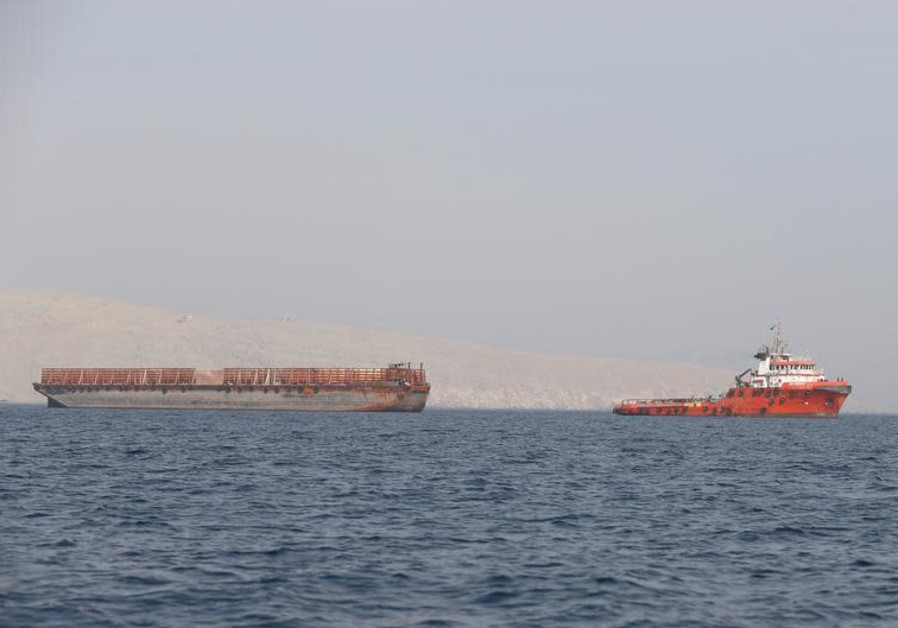Four tankers off the UAE port of Fujairah had been struck on May 12, a month before the incident on June 13. The most recent incident is much more serious. The US navy has been sent to assist.

Just after 8 AM on Thursday morning, the sound of explosions and a distress call were reported in both Oman and Pakistan. Earlier in the morning, the US Navysays it had received distress calls at 6:12 and 7:00am. The reports were picked up soon after by Al-Alam, which said two explosions had been heard and that two “giant” oil tankers had come under “attack.” The two calls could be linked to two different explosions that were heard.
It is important that Iranian media picked this up because it indicates that they sought to push this story rather than throw cold water on it. Press TV put up a “breaking” story and so did Tasnim News. Shortly after Al-Mayadeen which is pro-Syria regime also had several tweets about it.
The incident took longer to percolate into other media. Associated Press received comment from a UK navy group that appeared to confirm there was need for “caution” in the area of the incident. The US navy also eventually said they had received a distress call. This was about two hours after the incident. The US navy has a carrier strike group in the area. This is also a sensitive area, off the coast of Iran and near the Straits of Hormuz. A fifth of the world’s oil transits here.
Already tensions were high. Four tankers off the UAE port of Fujairah had been struck on May 12, a month before the incident on June 13. The US has accused Iran of “almost certainly” being behind that attack. In that attack what appeared to be small mines were attached to the hull of ships but did not sink them. No one was harmed. Two Saudi Arabia, one UAE and one Norwegian oil tanker were harmed.
The incident on Thursday is much more serious. The US navy has been sent to assist. Two tankers which were going from the UAE and Saudi ports respectively to Taiwan and Singapore appear to have been affected. Crews were evacuated from the ships.
This is a huge problem for the world’s oil traffic in the Strait of Hormuz and represents a massive escalation. It is not yet determined who did it, but obviously fingers will be pointed at Iran, a likely culprit. Iran has threatened to close the straits of Hormuz before, in light of US pressure and sanctions. But what does Iran gain by doing this right after the visit of the German foreign minister and the current visit of the Japanese Prime Minister? Japan and Germany are seeking to ease tensions. Why would Iran’s Islamic Revolutionary Guard Corps, the usual suspect, be involved in scuppering the work that President Hassan Rouhani and Foreign Minister Javad Zarif are doing to get around sanctions? Clearly a regime that targets oil tankers is not the moderate one that it wants to portray itself as, nor is it the victim. Iran has claimed to the victim of the US “economic terrorism,” but striking at oil tankers is actual economic terrorism.
As reported by The Jerusalem Post
